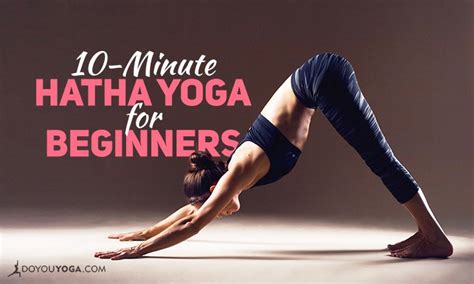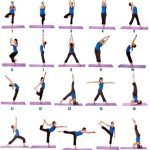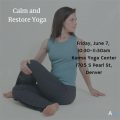Why Hatha Yoga Is the Ideal Practice for Complete Beginners
Hatha Yoga is renowned for its gentle and accessible approach to mind-body wellness. Whether you’re new to yoga or looking to improve flexibility and reduce stress, Hatha Yoga offers the perfect starting point. Its slower pace, focus on alignment, and the connection between breath and movement create a supportive environment for beginners. This article delves into why Hatha Yoga is particularly well-suited for novices, explaining its key concepts, historical roots, current applications, and potential future directions in the wellness community.
Introduction
Yoga is a multifaceted practice with numerous styles, each offering unique benefits. For those just starting their yoga journey, Hatha Yoga stands out as the perfect introduction. Known for its calming pace and emphasis on basic postures (asanas), Hatha Yoga enables practitioners to develop strength, balance, and flexibility while also cultivating mindfulness. This article explores the reasons Hatha Yoga is perfect for beginners by examining its history, principles, modern-day relevance, and practical benefits. We will also address common misconceptions and discuss how beginners can successfully integrate Hatha Yoga into their lifestyle.
Key Concepts
Before diving into the benefits of Hatha Yoga, it is crucial to understand its foundational concepts. Hatha, derived from Sanskrit, means “force” and refers to the physical practice of yoga as opposed to its meditative or devotional aspects. The core principles of Hatha Yoga revolve around the following:
- Asanas: Physical postures that stretch and strengthen the body.
- Pranayama: Controlled breathing techniques that help regulate energy.
- Alignment: Focus on proper form and posture to avoid injury and maximize benefits.
- Mindfulness: Cultivating awareness of the present moment during practice.
- Relaxation: Practices like Savasana (Corpse Pose) that help reduce stress.
These elements work together to form a holistic system of mind-body integration. Unlike more advanced yoga practices that may demand physical intensity, Hatha Yoga’s accessibility makes it an excellent option for beginners.
Historical Context
Hatha Yoga has a deep historical foundation, originating in India over a thousand years ago. It is often viewed as a precursor to modern yoga styles that emphasize physical postures. The earliest texts on Hatha Yoga, such as the Hatha Yoga Pradipika (15th century), were designed to prepare the body for long periods of meditation by balancing the physical and energetic systems.
While Hatha Yoga traditionally involved a combination of postures, breath control, and purification techniques, its adaptation in modern wellness culture has made it more approachable, particularly for beginners. These changes align with growing interest in holistic health and fitness trends, making Hatha Yoga a key practice in the global yoga movement.
Current State Analysis
Today, Hatha Yoga is practiced globally, and its appeal among beginners is undeniable. With the growing awareness of the importance of self-care and mental health, many turn to Hatha Yoga for its numerous benefits, including stress reduction, improved flexibility, and mental clarity. In contrast to high-intensity fitness routines, Hatha Yoga focuses on gradual progress, helping beginners build a sustainable practice.
| Key Benefits | Hatha Yoga | Other Forms of Yoga |
|---|---|---|
| Focus on alignment | Strong emphasis | Varying emphasis |
| Pace | Slow and deliberate | Faster (e.g., Vinyasa) |
| Breathing techniques | Pranayama is central | Not always prioritized |
| Level of difficulty | Beginner-friendly | Can be advanced |
| Mental relaxation | Focus on mindfulness | Varies by style |
Practical Applications
Hatha Yoga’s gentle and measured approach makes it ideal for various demographics, including seniors, individuals recovering from injury, and those dealing with stress. Its emphasis on proper alignment helps avoid injury, while the focus on mindfulness and breathing promotes mental well-being. Practicing Hatha Yoga regularly can lead to physical benefits such as enhanced flexibility, better posture, and improved circulation. Moreover, its mental benefits, including increased focus, reduced anxiety, and enhanced mood, have made it a popular choice in mental health therapy settings.
Examples of beginner-friendly Hatha Yoga poses include:
- Tadasana (Mountain Pose): A foundational standing pose that promotes balance and grounding.
- Adho Mukha Svanasana (Downward Dog): A mild inversion that stretches the back and hamstrings.
- Balasana (Child’s Pose): A resting pose that relieves stress and tension in the body.
- Setu Bandhasana (Bridge Pose): Strengthens the back and opens the chest.
Case Studies
Several studies highlight the effectiveness of Hatha Yoga for complete beginners. In a 2020 study conducted at a community health center in California, participants who practiced Hatha Yoga three times a week reported significant improvements in flexibility and mental clarity after just six weeks. Another case, conducted by a senior center in the UK, showed that elderly individuals practicing Hatha Yoga experienced improvements in mobility and pain management.
These case studies emphasize that Hatha Yoga’s slower, more deliberate approach not only caters to beginners but also helps individuals with varying fitness levels and health conditions.
Stakeholder Analysis
Hatha Yoga’s stakeholders include fitness enthusiasts, mental health professionals, wellness centers, and yoga instructors. Each has a vested interest in promoting the practice due to its holistic benefits.
- Fitness Enthusiasts: Hatha Yoga offers a low-impact, effective way to improve strength and flexibility, complementing other fitness regimes.
- Mental Health Professionals: The mindfulness aspect of Hatha Yoga makes it an effective therapeutic tool for reducing anxiety and stress.
- Wellness Centers: Incorporating Hatha Yoga into wellness programs attracts beginners looking for a gentle yet transformative practice.
- Yoga Instructors: Hatha Yoga allows teachers to cater to beginners, creating a broader and more inclusive client base.
Implementation Guidelines
For those starting Hatha Yoga, the following guidelines can help ensure a successful and sustainable practice:
- Start Slow: Choose beginner-friendly classes and avoid overexertion.
- Focus on Alignment: Pay attention to the instructor’s guidance on proper form to avoid injury.
- Incorporate Breathwork: Prioritize pranayama to help control energy and stay grounded.
- Practice Consistently: Regular practice, even just a few times a week, will yield better results than sporadic sessions.
- Use Props: Blocks, straps, and blankets can make poses more accessible for beginners.
Ethical Considerations
As Hatha Yoga continues to rise in popularity, ethical considerations regarding its commercialization and cultural appropriation must be addressed. Yoga’s roots are deeply spiritual and tied to Indian culture, and while Hatha Yoga is now practiced globally, it’s important for instructors and practitioners to honor its origins. This includes educating beginners about yoga’s historical context and ensuring that the practice is inclusive and respectful.
Limitations and Future Research
Although Hatha Yoga is a gentle practice, beginners should still be mindful of their physical limits, particularly if they have existing injuries or health conditions. More research is needed to explore the long-term physical and mental health benefits of Hatha Yoga for various populations, particularly in clinical settings. Future research could also investigate the role of Hatha Yoga in reducing chronic conditions such as hypertension, anxiety, and depression.
Expert Commentary
Experts in the fields of fitness, mental health, and wellness agree that Hatha Yoga is one of the best entry points for beginners. Its slow, deliberate movements allow practitioners to build a strong foundation in both body and mind. According to Dr. Rachel Henderson, a leading psychologist specializing in stress management, “The combination of breath awareness and gentle postures in Hatha Yoga provides immediate and lasting benefits for both mental and physical health. It’s an accessible option for beginners who may feel overwhelmed by faster-paced forms of exercise.”
Overall, Hatha Yoga remains a highly recommended practice for those new to yoga, providing a well-rounded introduction to the principles of physical wellness and mental mindfulness.








